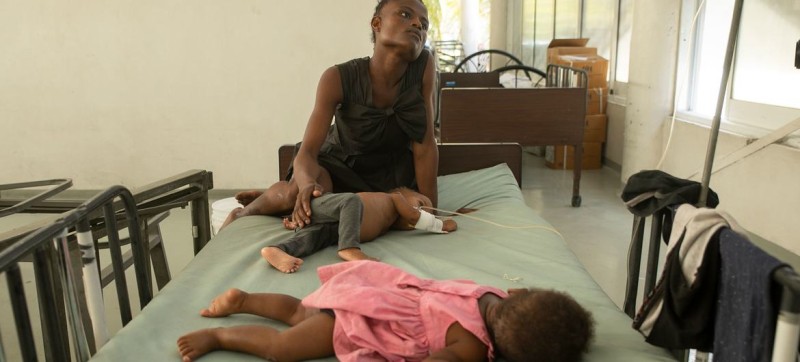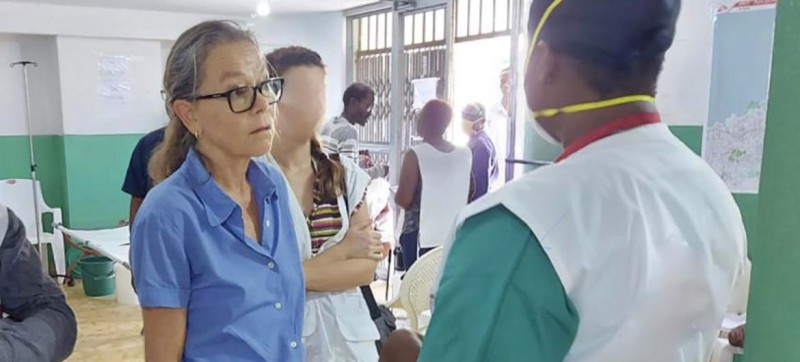
© UNICEF/Odelyn Joseph A one-year-old boy who is suffering from cholera is comforted by his mother at a hospital in Port-au-Prince, Haiti.
Ulrika Richardson, UN Resident and Humanitarian Coordinator in the Caribbean country, updated journalists in New York on the deadly outbreak, which was declared on 2 October.
So far, 283 people have died, nearly 12,000 have been hospitalized, and more than 14,000 suspected cases have been recorded.
Increase in cases
“What we are seeing in fact, is not only the continued increase of cholera cases, but also the spread to the regions,” she said.
“In eight of the 10 departments there are confirmed cholera cases, and this is a worrying trend for us and for the country.”
Ms. Richardson is at UN Headquarters for a three-day visit to meet with senior officials and colleagues on the outbreak, which is unfolding amid political instability, gang violence and unprecedented hunger.
The flash appeal was launched last month to support emergency cholera response and to provide life-saving assistance to 1.4 million people living in affected areas. Some $23.5 million has been received to date, she said.

UNOCHA/Christian Cricboom Ulrika Richardson (centre), the UN Resident and Humanitarian Coordinator in Haiti visits a cholera treatment centre in Port-au-Prince.
Insecurity and violations
While grateful for the funding, Ms. Richardson highlighted the immense needs as a new year approaches.
“In fact, the humanitarian needs continue to increase,” she said, adding that the UN is currently preparing the 2023 Humanitarian Response Plan for Haiti, which calls for $719 million, or roughly double the amount requested this year.
Meanwhile, “insecurity continues to be rampant, with really chilling reports of human rights violations,” she reported.
Gangs dominate nearly 60 per cent of the capital, Port-au-Prince, and use terrifying means to keep the population in control, including sexual violence. Women and girls are affected, but so are men and boys, as the gangs fight over territory.
“That territory is worth both fighting for and defending at all costs, and the cost here is a human cost,” she said.
The insecurity has also sparked massive displacement, particularly in the capital. Some 155,000 people have been uprooted – a nearly 80 per cent increase since August.
UN commitment
Ms. Richardson also pointed to a positive development, noting that more than half of schools have reopened, despite all the challenges.
School closures have affected some four million children, many of whom have not had proper access to education since the start of the COVID-19 pandemic.
The Humanitarian Coordinator in Haiti underscored the UN’s continued support to the country, whether in cholera response, education, or distribution of food and other items to vulnerable families.
“We have logistical challenges, you can imagine, and the security challenge, but we are able to be present and we are able to help people,” she told journalists.
“We are obviously focusing on the most vulnerable, but we also try not to lose focus on the real structural root causes. So, we have corruption, we have impunity, we have governance, and all of that needs to really be at the centre also of our thinking as we go forward.”

